-
Maximum CityBombay Lost and Found
The sky over Bombay was filled with gold and silver, masonry, bricks, steel girders, and human limbs and torsos, flying through the air as far as Crawford Market. A jeweler was sitting in his office in Jhaveri Bazaar when a bar of solid gold crashed through the roof and arrived in front of him. A steel girder flew through the air and crashed through the roof of Victoria Terminus, the main train station. A plate of iron landed on a horse and neatly decapitated the animal. Stray limbs and fragments of bodies were blown all over the docks. Bombay had never, till then, seen any wartime action. It was as if the city had been bombed.
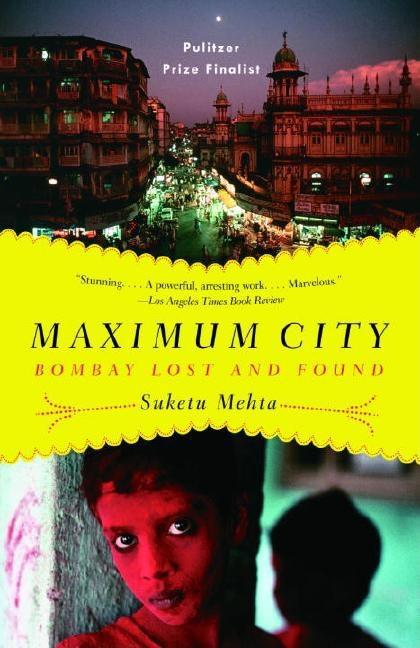 Maximum City : Bombay Lost and Found
Maximum City : Bombay Lost and Found -
Maximum CityBombay Lost and Found
In business, so entrenched has extortion become that the Bombay High Court recently ruled that extortion payments are tax deductible as a legitimate business expense. Extortion is a form of tax. Since there is a parallel justice system, there have to be parallel taxes. It used to be that there was only one gang—Dawood’s. But now that there are multiple gangs operating, as soon as the businessman pays one, all the others line up for their payments, so he finds himself paying four or five gangs at once. He might even be paying freelance extortionists, people who pose no real threat. The implicit or explicit tradeoff in the protection racket—you give me money, I give you protection from myself and others—no longer applies. The gangs are powerless to afford protection against the others. It is less a protection racket now and more like a simple mugging: You give me your money or I’ll kill you.
 Maximum City : Bombay Lost and Found
Maximum City : Bombay Lost and Found -
Maximum CityBombay Lost and Found
The narrative principles that propel the plot are alien to those of, say, the Iowa Writers’ Workshop, where I spent two years. I entertain myself by imagining what would happen if the script were put up in workshop. My contribution to the script is minimal at best. I propose an idea that departs from the standard Hindi film formula. Vinod thinks about it. “We can’t do it because if we put it in the film the audience will burn down the theater. They will rip out the seats and burn down the theater.”
I withdraw the suggestion.
 Maximum City : Bombay Lost and Found
Maximum City : Bombay Lost and Found
-
Make Me WorkStoriesFrom"A Half Hour with God’s Heroes"
The statue’s resting place looked pretty good. All she really had to do was get him deep enough so the dogs didn’t dig him up before the sale. After her exertions over his tomb, the hollow Saint Joseph seemed to weigh nothing in her hand. He seemed to float in space before her eyes. She set him down on his back in the hole, but found that she couldn’t shovel the dirt on top of him, not right on his face like that. She turned him face-down, but that seemed worse. When she picked him up again, half-frozen dirt had sifted into his open base. You could see it through the translucent, cream-colored skin: Saint Joseph turning brown as he filled up with soil.
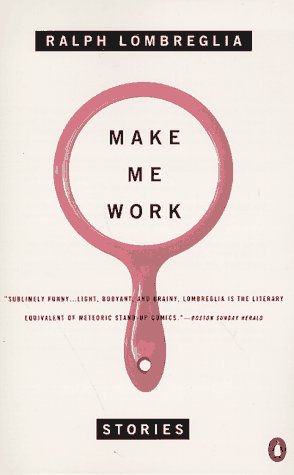 Make Me Work : Stories
Make Me Work : Stories- Print Books
- Find your local bookstore (via IndieBound)
- Powell's
- Barnes & Noble
- Alibris
- Abe Books
- E-Books
- Kobo
- Barnes & Noble
-
Make Me WorkStoriesFrom"Every Good Boy Deserves Favor"
Jennifer was a performance artist. The blood was a prop in her act. There were many props in Jennifer’s act, but blood was the unifying device. She concealed plastic sacs of the homemade blood in various articles she had with her onstage—a child’s fluffy teddy bear, her pearl-encrusted evening bag, the bodice of her white bridal gown. For an hour she paraded about to her own synthesizer music, acting out dysfunctional family relationships and decrying bankrupt, oppressive governments, while the Barbie-doll world hemorrhaged around her.
 Make Me Work : Stories
Make Me Work : Stories- Print Books
- Find your local bookstore (via IndieBound)
- Powell's
- Barnes & Noble
- Alibris
- Abe Books
- E-Books
- Kobo
- Barnes & Noble
-
Make Me WorkStoriesFrom"Heavy Lifting"
More than anything, he would like to turn the nighttime sky into 3-D color TV. That would be the most incredible hack of all, he says, and he claims to know how to do it, but it would cost a lot of money, even for a few seconds, and so far the funding has been elusive. He pitched the idea to his old friend Vernon DeCloud—financing celestial television by selling some sky-time for advertising—and though Vern would be perfectly happy to go down in history as the man who turned the stratosphere into a Coke commercial, he said no. Vern didn’t believe Tempesto could do it.
 Make Me Work : Stories
Make Me Work : Stories- Print Books
- Find your local bookstore (via IndieBound)
- Powell's
- Barnes & Noble
- Alibris
- Abe Books
- E-Books
- Kobo
- Barnes & Noble
Selected Works
read more >-
Blood HorsesNotes of a Sportswriter’s Son
When the gates fly open the horses are like a freak storm moving over the track together, their legs attended by a cloud of dust that they trail behind them, their jockeys’ colors flashing kaleidoscopically in the sunlight. The loudness of their pounding takes me by surprise. It overwhelms even the crowd. I am so stunned by the sight of them that by the time I collect myself, they have disappeared around the turn. We who are sitting close to the wire stand there listening to the call, waiting for them to reappear.
 Blood Horses : Notes of a Sportswriter’s Son
Blood Horses : Notes of a Sportswriter’s Son -
Blood HorsesNotes of a Sportswriter’s Son
A little under a million years ago, the old Atlantic land bridge having receded and a new one having formed over the Bering Strait, this thing, which was now a specimen we would recognize, found its way over—opposite to the way we came—and colonized Europe and Asia: herds of wild horses, alpha stallions with their harems of mares, “bachelor bands” of subdominant males, moving like wind patterns across the steppes and the plains. They had become ungulates—mono-toed, hooved—and they had become fast, faster than anything on the solid earth apart from the cats, and the cats could maintain their speed for only a few hundred yards or so, whereas this creature could run from morning to night.
 Blood Horses : Notes of a Sportswriter’s Son
Blood Horses : Notes of a Sportswriter’s Son -
Blood HorsesNotes of a Sportswriter’s Son
So many horses had died in World War I that some voiced fears for the global equine population: numbers had dipped low enough that a single epidemic might put the species within range of extinction. Field Marshal Haig, not convinced by the tends of thousands of men he had watched ride to their deaths, was still arguing in 1926 for the “value” of the horse in war, writing that “as time goes on, you will find just as much use for the horse—the well-bred horse—as you ever have done in the past,” but by the time World War II broke out, even the old fops had accepted the fact that tanks, planes, and machine guns made cavalry tactics untenable.
 Blood Horses : Notes of a Sportswriter’s Son
Blood Horses : Notes of a Sportswriter’s Son
Selected Works
read more >-
Beauty Before ComfortThe Story of an American Original
Aneita Jean never liked the men at the Klan rallies. It scared her not to see their faces. It made her uncomfortable that they all seemed to know her daddy, and that he knew them by their raspy voices. She would watch them circling around on the hill, their crosses aflame, and snuggle closer to her father’s chest.
“I want to leave, daddy,” she’d say softly, fearful they might overhear and come running back, robes flapping behind like hateful phantoms.
“Hush up, Jeannie.”
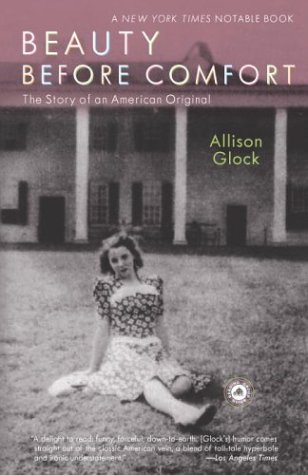 Beauty Before Comfort : The Story of an American Original
Beauty Before Comfort : The Story of an American Original -
Beauty Before ComfortThe Story of an American Original
She awoke to the sound of the door creaking open. She could tell from the backlit outline that it was not the baby’s mother who was coming in, but a boy. She said nothing, pressed her eyes shut, and pretended she was still asleep. When the boy climbed on top of her, she knew who it was. Silently, she slid the baby to the far corner of the blanket, until only her fingertips were touching the baby’s chubby thigh. Then she lay absolutely still while George Kelly ran his shaky hands over her belly and under her dress.
 Beauty Before Comfort : The Story of an American Original
Beauty Before Comfort : The Story of an American Original -
Beauty Before ComfortThe Story of an American Original
When you work at the pottery or the mill or the mine, you come to understand certain truths. Hands are lopped off. Bones are broken. Machines grind men up. Mines collapse. Lungs clog. Men drink. Women gossip. You are born knowing that most people get lost, that their stories die with them. You expect little else. And so you talk a lot about nothing and you get shit-faced and you welcome violence if for no other reason than because you can ignite it.
 Beauty Before Comfort : The Story of an American Original
Beauty Before Comfort : The Story of an American Original
Selected Works
read more >-
War by CandlelightStoriesFrom"City of Clowns"
In Lima, dying is the local sport. Those who die in phantasmagoric fashion, violently, spectacularly, are celebrated in the fifty-cent papers beneath appropriately gory headlines: DRIVER GETS MELON BURST or NARCO SHOOTOUT, BYSTANDERS EAT LEAD. I don’t work at that kind of newspaper, but if I did, I would write those headlines too. Like my father, I never refuse work. I’ve covered drug busts, double homicides, fires at discos and markets, traffic accidents, bombs in shopping centers. I’ve profiled corrupt politicians, drunken has-been soccer players, artists who hate the world. But I’ve never covered the unexpected death of a middle-aged worker in a public hospital. Mourned by his wife. His child. His other wife. Her children.
My father’s dying was not news.
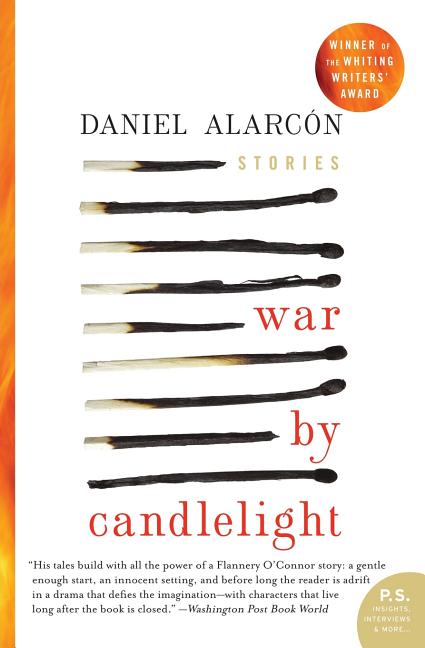 War by Candlelight : Stories
War by Candlelight : Stories -
War by CandlelightStoriesFrom"Lima, Peru, July 28, 1979"
There were ten of us and we shared a single name: compañero. Except me. They called me Pintor. Together we formed an uncertain circle around a dead dog, under the dim lights off the plaza. Everything was cloaked in fog. Out first revolutionary act, announcing ourselves to the nation. We strung up dogs from all the street lamps, covered them with terse and angry slogans, Die Capitalist Dogs and such; leaving the beasts there for the people to see how fanatical we could be. It is clear now that we didn’t scare anyone so much as we disturbed them and convinced them of our peculiar mania, our worship of frivolous violence. Fear would come later.
 War by Candlelight : Stories
War by Candlelight : Stories -
War by CandlelightStoriesFrom"A Science for Being Alone"
Every year of Mayra’s birthday, since she turned one, I have asked Sonia to marry me. This year our little girl turned five. Each rejection has its own story, but until recently, before the two of them left, I preferred to think of these moments as one long, unfinished conversation. Mayra’s fifth fell on a hot, bright day. I had twenty-five soles in my pocket, the ring, and a little makeup kit I’d bought for my daughter. I was at the Plaza Manco Capac, waiting for a spot at the lunch counter of a cheap criollo place before heading over to see the women of my life.
 War by Candlelight : Stories
War by Candlelight : Stories
Selected Works
read more >-
7 TattoosA Memoir in the Flesh
I show Hanky Panky the design that I adapted from a photo in a book of Dayak art, and he has me take off my shirt and he sketches the design on my collarbone with a grease pencil. Then he calls over an assistant to shave my chest. Now, under other circumstances, this could be kind of a turn-on. But in Hanky Panky’s tattoo parlor it justs reminds me of the shaving I had to undergo before some surgery I once had in the groin region. That one, much to my initial disappointment, had been performed by a male nurse, although actually I did see the wisdom of having a man for the job at around the time he began to whisk the razor around my balls. “Hey, be careful. Please!” I begged. And my male nurse answered, “Don’t worry, buddy. I’ll handle ‘em like they were my own.”
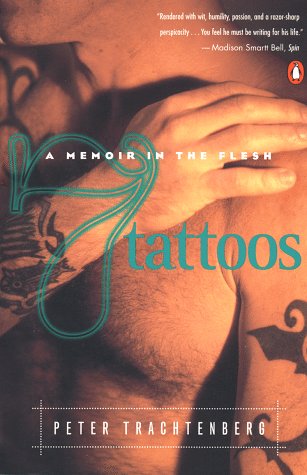 7 Tattoos : A Memoir in the Flesh
7 Tattoos : A Memoir in the Flesh -
7 TattoosA Memoir in the Flesh
But inside the warehouse there are rows of pews. And every pew is filled with junkies. There are black junkies and Anglo junkies and Latino junkies. There are twelve-year-old boys sniffling from their first training-wheel habits and stooped veterans with hands like waterlogged sponges, those hands that everyone calls “New York mittens.” There are fashion models with the faces of drowsy angels who’ve been chauffeured down from townhouses in the East Sixties and who’ll powder their tracks with Lancome before the next day’s photo shoot. There are cadaverous, crookbacked junkies who’ve crawled from beneath rain-soaked packing crates in Tompkins Square Park and whose bodies are gruesome exempla of their disease: every vein collapsed, every limb cratered, eyes jaundiced, teeth rotten, dicks gone flaccid as the peeled shrimp in a fishmonger’s window—the kind of junkies you always look at and think, At least I’m not that bad.
 7 Tattoos : A Memoir in the Flesh
7 Tattoos : A Memoir in the Flesh -
7 TattoosA Memoir in the Flesh
Here are the benefits of being alone and celibate:
You can read all night and no one will nag you to turn off the light.
You can go to Borneo on the spur of the moment without anyone wanting to know when you’ll be back.
You can prepare meals so disgusting you’d be ashamed to eat them in company: Grill a slice of bologna till it curls up at the edges; fill the cup with baked beans; then top with a slice of Kraft American cheese and broil till melted. Serve with dill pickle and sliced tomato.
You can fart to your heart’s content without having to say “Excuse me,” though you may grow so accustomed to this that you find yourself doing it in public places—on the line at your savings bank, for instance – and getting nasty looks from strangers.
… On bad nights you can scoop up your cats and cuddle them shamelessly, even kissing them on the nose, though they usually dislike this and will try to shove you away with their paws. If worse comes to worst, you can press your face against their bodies and weep copiously into their fur.
 7 Tattoos : A Memoir in the Flesh
7 Tattoos : A Memoir in the Flesh
Selected Works
read more >-
Playing in TimeEssays, Profiles, and Other True StoriesFrom"The Prospect"
Like most of the fight world’s habits, hand wrapping is both practical and ritual. Done properly, it protects the hands from damage without giving a fighter an unfair advantage. Like boxing gloves or a football helmet, wrapping functions as both armor and sword, a protective measure that allows you to hit harder and more frequently than you could without it. One of the officials murmured, “That’s beautiful.” Colonna said “Thank you” without looking up from his work.
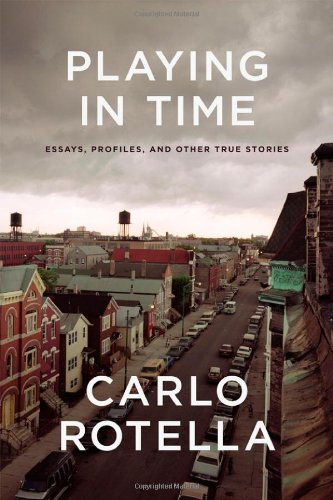 Playing in Time : Essays, Profiles, and Other True Stories
Playing in Time : Essays, Profiles, and Other True Stories -
Playing in TimeEssays, Profiles, and Other True StoriesFrom"Someone Else’s Chicago"
The Polkaholics, sweating like stevedores, are in fine ironic form, decked out in white shoes, black pants, white ruffled shirts, and stunning leopard-print vests with matching oversize bow ties. All wear thick-framed glasses, and anyone standing anywhere near the stage can smell the torrent of Old Spice with which they douse themselves, Method actor style, before a show. They do not play polka versions of rock tunes, an ill-advised crossover strategy that has produced far too many bizarre novelty songs by polka bands. Rather, they play original songs and well-chosen polka covers that make use of rock sensibilities, winkingly sampled classic-rock phrases, and bursts of the jet-engine guitar whine common to certain forms of punk and heavy metal—all undergirded by drums and bass playing straight-ahead, hurry-up polka rhythms.
 Playing in Time : Essays, Profiles, and Other True Stories
Playing in Time : Essays, Profiles, and Other True Stories -
Playing in TimeEssays, Profiles, and Other True StoriesFrom"Un Clown Biologique"
Tom C. cultivated a morbid fascination with clowns. Instead of merely doodling in class, he created obsessive dossiers of clown types: the savage Jester, the crocodile-teared Sad Clown, the enigmatic Bowler Hat, the rare Plume Clown, the annihilating Whiteface. He practiced different stylized ways of saying the word clown—drawing it out, barking it sharply, stretching his rubbery features to make a demented face while he said it, adopting a strangled or a booming voice—as if he could figure out what was hiding in the word by turning it inside out. He drew up clown scenarios and composed clown ditties, and invented ancient traditions to which they belonged. He tried to figure out if it would be worse to wake up one night to find a clown at the foot of your bed or to think you had dreamed it and then find a deflated balloon in your room the next morning.
 Playing in Time : Essays, Profiles, and Other True Stories
Playing in Time : Essays, Profiles, and Other True Stories
Selected Works
read more >-
Birds in FallA Novel
The cabin rattled. The bulkheads shook. The overhead bins popped open. Bags, briefcases, satchels rained down. The cellist clenched her eyes. I felt her fingers tightened on mine—but it was Ana I felt beside me.
We broke cloud cover and dropped into a pool of dark. The bones around my cheeks pressed into my skull. I saw the sheet music flattened like a stamp on the ceiling. The metamorphoses. I couldn’t tell which way was up and which was down and out the window a green light stood on the top of the world, a lighthouse spun above us, a brief flame somewhere in the night.
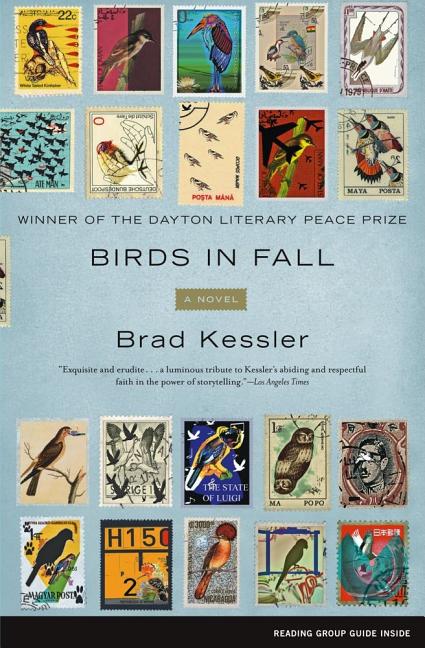 Birds in Fall : A Novel
Birds in Fall : A Novel -
Birds in FallA Novel
The woman couldn’t say when they were likely to arrive. Two days, three days, perhaps more. Everything depended upon the search and rescue—and if any of the 242 passengers could indeed be found—and whether their surviving family members actually wanted to make the trip to Trachis. Of course, she said, the airline would fully compensate the inn. Most people probably wouldn’t come, she speculated. But the island was the nearest landfall to the crash, and some no doubt would want to travel there—“for closure,” she added.
 Birds in Fall : A Novel
Birds in Fall : A Novel -
Birds in FallA Novel
During World War II high-flying pilots over the Atlantic often puzzled over phantom specks that showed up on their radar screens. “Radar angels,” they dubbed them and wondered at the faint apparitions, only to learn years later that they were actually birds migrating over open water. Birds, like humans, are mostly moisture—they’re ninety percent water—and a flock of finches on a radar screen shows up like a small weather system: one or two green dots. On a night of heavy migration in autumn or spring, a radar screen blossoms with fleeting spectral dots.
 Birds in Fall : A Novel
Birds in Fall : A Novel
Selected Works
read more >-
Harper's MagazineJanuary 2005From"Romance of Rust: Nostalgia, Progress, and the Meaning of Tools"
I've lurked in chat rooms with discussion threads devoted to such subjects as “A previously unknown Albert Goodell brace found in the wild.” One sweltering summer morning, on the Jay County fairgrounds in the farming village of Portland, Indiana, I walked among fabulous machines as small as schnauzers and as huge as elephants, all gleaming in the August sun. Drive belts whirred, flywheels revolved, pistons fired, and a forest of smokestacks piped foul smoke and rude music into the otherwise cloudless sky. Mostly, I have ridden a Midwestern circuit of flea markets and farm auctions in the passenger seat of an emerald green Toyota pickup truck piloted by a fifty-five-year-old botanist with a ponytail, spectacles like windowpanes, and a beard verging on the Whitmanesque.
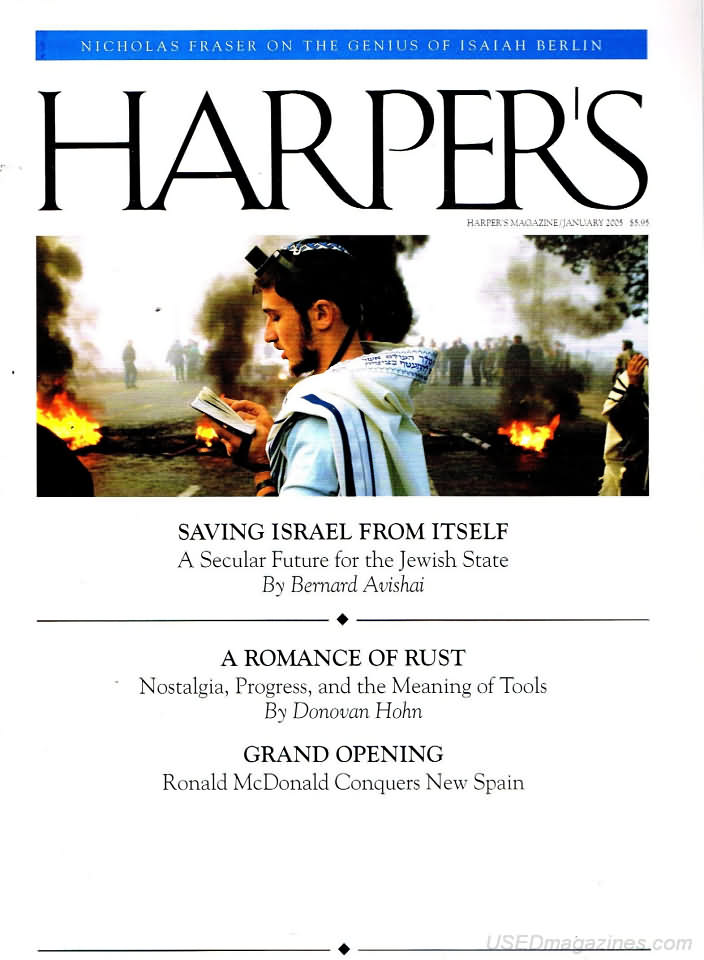 Harper's Magazine : January 2005
Harper's Magazine : January 2005- Print Books
- Harper's Magazine
- E-Books
- Google Books
-
Harper's MagazineApril 2008From"Falling: Confessions of a Lapsed Forest Christian"
In the depths of the Great Depression, the peak had become home to the largest cross on Earth, a 103-foot-tall monstrosity of concrete and steel. Some 50,000 San Franciscans had gathered for the dedication ceremony, held March 24, 1934, at the summit. Far away in Washington, D.C., at precisely 7:30 P.M. Pacific Standard Time, President Roosevelt depressed the golden key of his executive telegraph, an electric signal leapt the continent, and atop Mount Davidson the cross, lit from below by twelve 1,000-watt lamps, blazed into the night sky like a flaming sword. It would continue to glow, a lunar presence on the San Francisco skyline, off and on for the next forty-two years, until 1976, when—except for a few days at Christmas and Easter—the national energy crisis extinguished it.
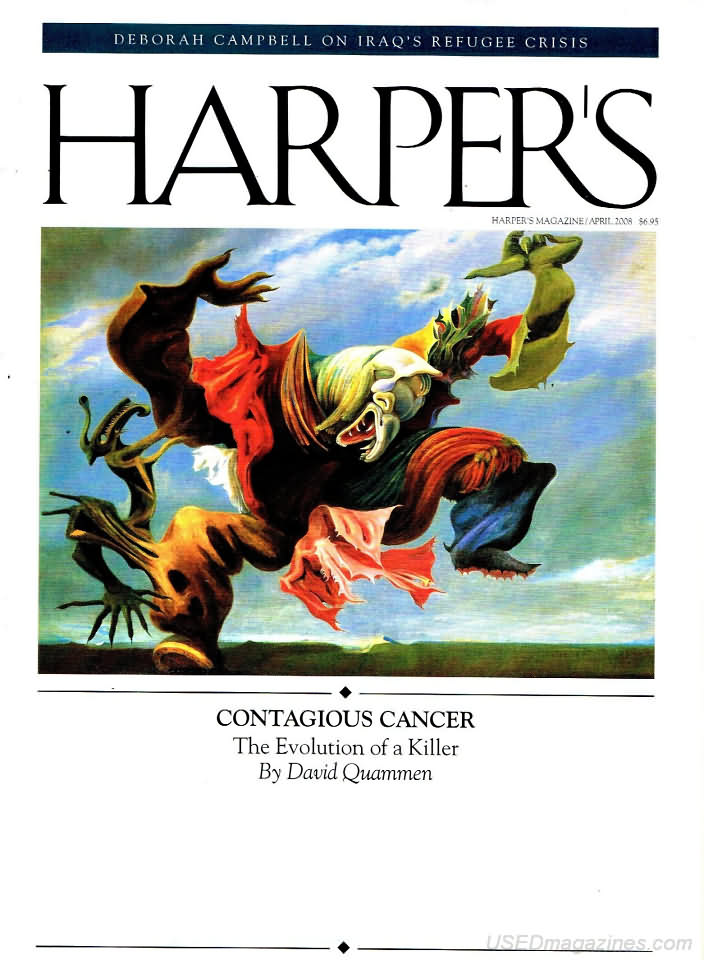 Harper's Magazine : April 2008
Harper's Magazine : April 2008- Print Books
- Harper's Magazine
- E-Books
- Google Books
Selected Works
read more >-
The PossessedAdventures with Russian Books and the People Who Read Them
“The American girl will judge the leg contest!” they announced. I was still hoping that I had misunderstood them, even as German techno music was turned on and all the boys in the camp, ages eight to fourteen, were paraded out behind a screen that hid their bodies from the waist up; identifying numbers had been pinned to their shorts. I was given a clipboard with a form on which to rate their legs on a scale from one to ten. Gripped by panic, I stared at the clipboard. Nothing in either my life experience or my studies had prepared me to judge an adolescent boys’ leg contest. Finally the English teacher, who appeared to understand my predicament, whispered to me some scores of her own devising, and I wrote them on the form as if I had thought of them myself.
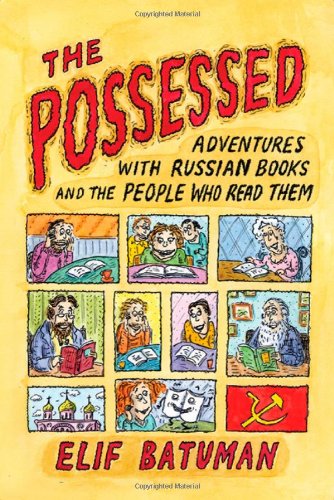 The Possessed : Adventures with Russian Books and the People Who Read Them
The Possessed : Adventures with Russian Books and the People Who Read Them -
The PossessedAdventures with Russian Books and the People Who Read Them
Chekhov was nine years old when War and Peace was published. He admired Tolstoy tremendously and longed to meet him; at the same time, the prospect of this meeting filled him with such alarm that he once ran out of a bathhouse in Moscow when he learned that Tolstoy was also there. Chekhov did not want to meet Tolstoy in the bath, but this apparently was his inescapable destiny. When at last he worked up the nerve to go to Yasnaya Polyana, Chekhov arrived at the exact moment when Tolstoy was headed to the stream for his daily ablutions. Tolstoy insisted that Chekhov join him; Chekhov later recalled that, as he and Tolstoy sat naked in the chin-deep water, Tolstoy’s beard floated majestically before him.
 The Possessed : Adventures with Russian Books and the People Who Read Them
The Possessed : Adventures with Russian Books and the People Who Read Them -
The PossessedAdventures with Russian Books and the People Who Read Them
Today, Russians remember Empress Anna primarily for her love of jesters, dwarfs, and Germans, all of whom enter into her biography at an early point. In 1710, when Anna was seventeen, her uncle Peter the Great arranged her marriage to Duke Friedrich Wilhelm, the German ruler of the small duchy of Courland: a strategic alliance, intended to bolster Russia’s support of Courland against its big neighbors, Prussia and Poland. At the wedding banquet, the tsar cut open two pies with his dagger. A splendidly dressed dwarf jumped out of each pie and together they danced a minuet on the table. The next day, Peter treated his guests to a second wedding: that of his favorite dwarf, attended by forty-two other dwarfs from all corners of the empire. Some foreign guests saw a certain symmetry in the double wedding, one between two miniature people, the other between two pawns in the great game of European politics.
 The Possessed : Adventures with Russian Books and the People Who Read Them
The Possessed : Adventures with Russian Books and the People Who Read Them